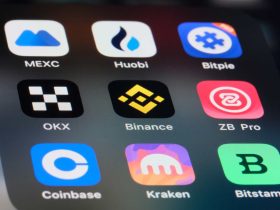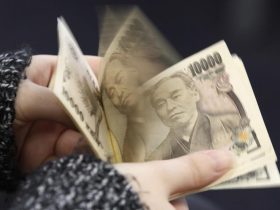By Jamie McGeever
(Reuters) – A look at the day ahead in Asian markets from Jamie McGeever, financial markets columnist.
Australia’s central bank grabs the Asia-Pacific spotlight on Tuesday, its latest interest rate decision topping a bulging regional economic calendar, as the return of U.S. markets after the Labor Day holiday really kicks September trading into gear.
Local markets will also be alert to inflation readings from South Korea, the Philippines and Vietnam, a sprinkling of purchasing managers index reports including services PMI from China, and second quarter GDP growth figures from South Korea.
The Reserve Bank of Australia is expected to keep its key cash rate unchanged at 4.10% as inflation shows signs of easing, keeping its powder dry for a final hike by the end of the year, according to a Reuters poll.
Money market traders are less convinced – current pricing indicates no more than a 50-50 probability of another hike this year, suggesting the RBA’s 400-basis point hiking cycle started in May last year is over.
The RBA has surprised markets this year, however, pausing in April and then tightening policy in May. The RBA’s guidance offered on Tuesday could trigger big moves in the Australian dollar.
More broadly, Asian markets go into Tuesday with a spring in their step, with the MSCI Asia Ex-Japan stock index up eight out of the last 10 sessions. Japan’s , boosted by the weak yen, is up six days in a row and on its best run since May, and has only declined once in the last 11 sessions.
A large part of the mini revival across Asia is down to the rebound in China as investors have given a cautious thumbs up to Beijing’s efforts to support the creaking property sector, markets and wider economy.
The latest measures on Friday, together with property developer Country Garden’s bond deal, helped spur a 1.5% jump in China’s blue chip shares, their biggest rise since late July.
Country Garden shares ended 14.6% higher on Monday after having jumped almost 20% to their highest level since Aug. 10, and Hong Kong’s mainland properties index rose as much as 10%.
Not everyone, however, is happy. Some smaller onshore bondholders are calling for the nullification of the deal, arguing it is unfair and illegal, according to sources and a document.
It remains to be seen how long the respite for China lasts.
On the political front, hopes of a possible face-to-face meeting between Presidents Joe Biden and Xi Jinping at the upcoming G20 summit in India appear to have been dashed.
China’s foreign ministry on Monday said that China’s delegation in New Delhi this weekend will be led by Premier Li Qiang.
Meanwhile, markets may have become inured to saber-rattling from North Korean leader Kim Jong Un, but reports on Monday that he is to meet Russian President Vladimir Putin in Russia to discuss weapons may have investors on their toes again.
Here are key developments that could provide more direction to markets on Tuesday:
– Australia interest rate decision
– China Caixin services PMI (August, final)
– South Korea GDP (Q2)
(By Jamie McGeever; Editing by Josie Kao)
Read the full article here













Leave a Reply